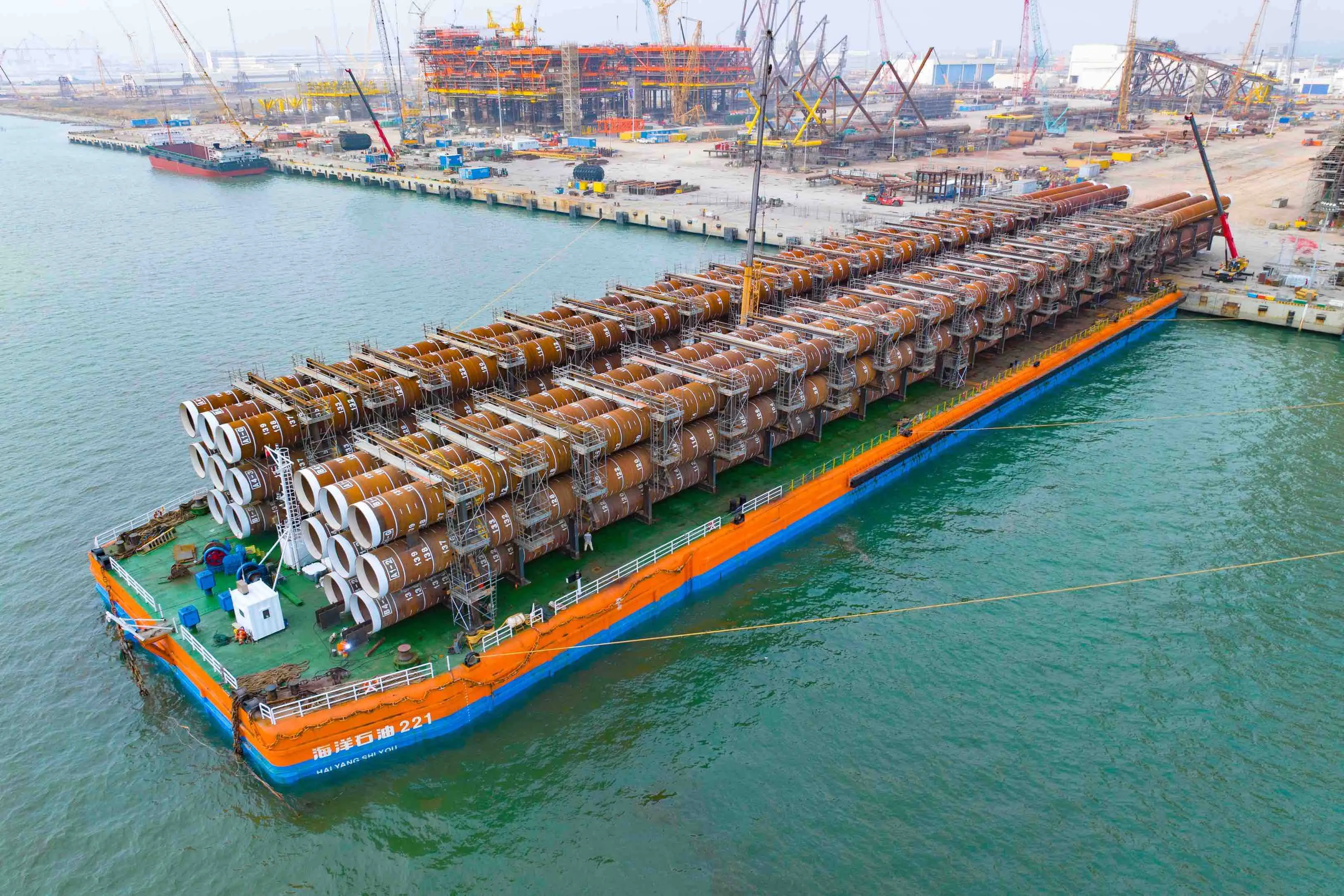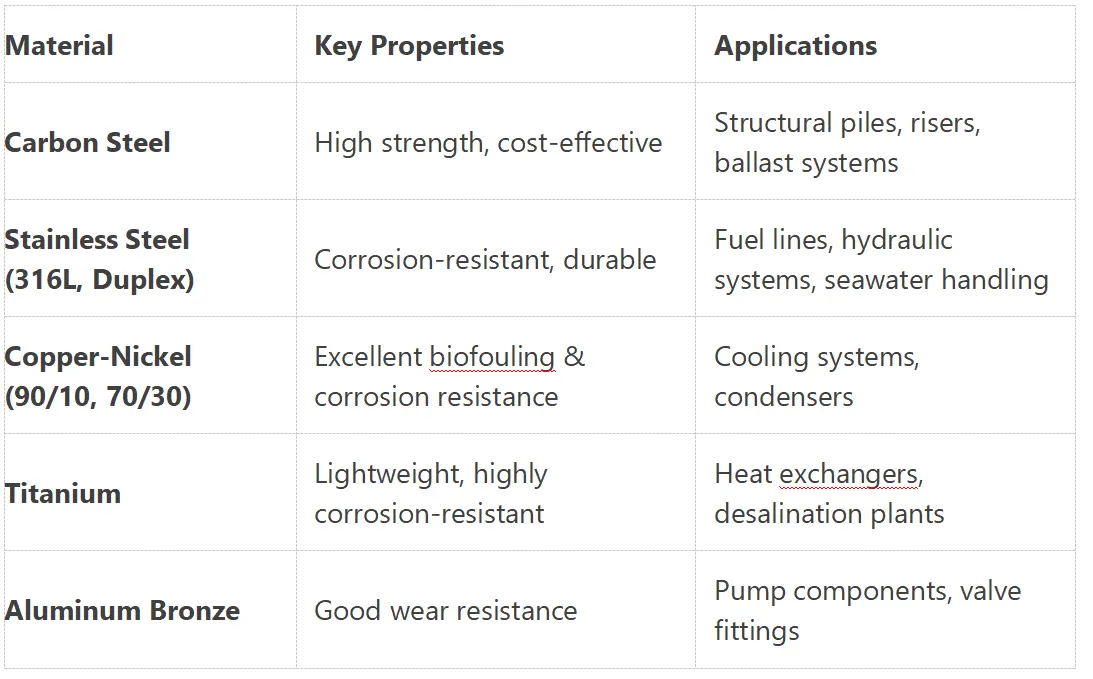 export@ezsteelpipe.com
export@ezsteelpipe.com +86 731 8870 6116
+86 731 8870 6116

Metal piping materials are widely used in marine construction projects due to their durability, corrosion resistance, and ability to withstand harsh marine environments. Below are the key applications of metal piping in different types of marine construction:
- Fuel & Oil Systems: Stainless steel and carbon steel pipes transport fuel, lubricants, and hydraulic fluids.
- Ballast & Bilge Systems: Pipes manage water intake/outflow for stability.
- Cooling & Exhaust Systems: Seawater-cooling systems often use copper-nickel (Cu-Ni) or titanium pipes for corrosion resistance.
- Firefighting Systems: Seamless steel pipes deliver pressurized water or foam.
- Riser & Flowline Pipes: High-strength duplex stainless steel or carbon steel with coatings transports oil/gas from seabed to surface.
- Process Piping: Used in separation, compression, and treatment systems.
- Hydraulic & Control Lines: Small-diameter stainless steel pipes for subsea control systems.
- Dock & Pier Construction: Steel piles and pipes support structures and provide fendering.
- Water Supply & Drainage: Large-diameter steel or ductile iron pipes handle stormwater and sewage.
- Fueling Stations: Pipelines deliver fuel to ships and storage tanks.
- Oil & Gas Transmission: Carbon steel (with anti-corrosion coatings) or flexible pipes transport hydrocarbons over long distances.
- Water Injection Lines: Used in offshore drilling to maintain reservoir pressure.
- Foundation Structures: Steel pipes serve as monopiles or jacket legs for wind turbines.
-Cooling Systems for Power Plants: Titanium or Cu-Ni pipes handle seawater cooling in desalination or OTEC plants.
- Seawater Intake/Discharge: Titanium, super duplex stainless steel, or HDPE-lined steel pipes resist saltwater corrosion.
- Brine & Freshwater Transport: High-pressure pipes distribute treated water.

- Corrosion Resistance: Coatings (epoxy, galvanization) or cathodic protection may be needed.
- Pressure & Temperature Ratings: High-grade alloys for deep-sea applications.
- Flexibility & Fatigue Resistance: Critical for dynamic offshore environments.
Metal piping remains essential in marine construction due to its adaptability, strength, and longevity in saltwater conditions. Advances in corrosion-resistant alloys (CRA) and composite-lined pipes continue to expand their applications.
Would you like details on a specific marine piping system?
 Related Products
Related Products